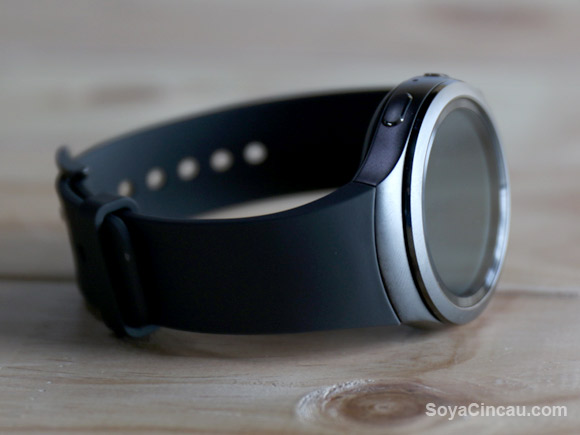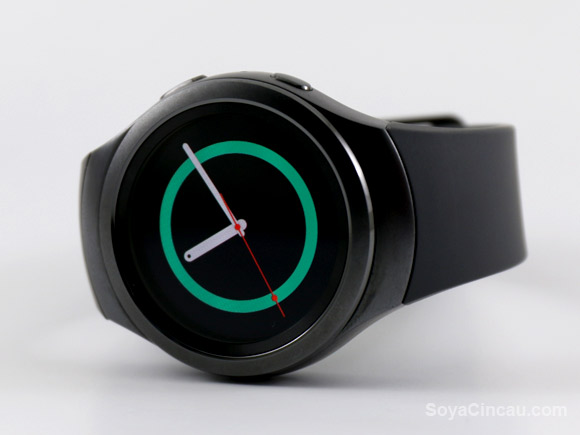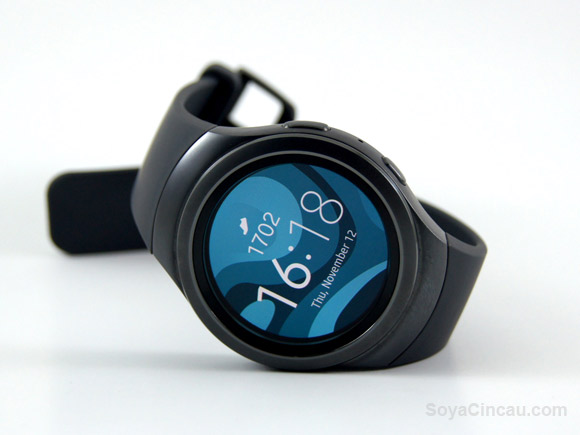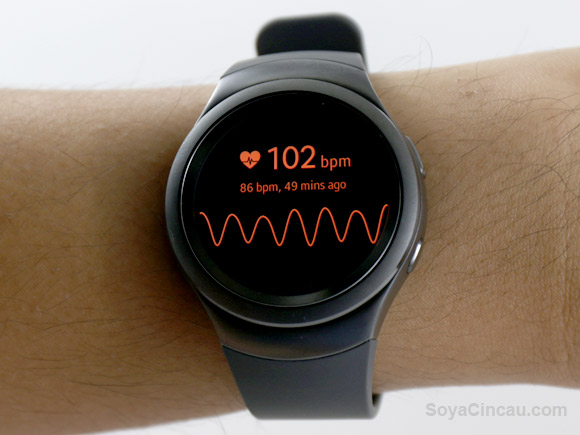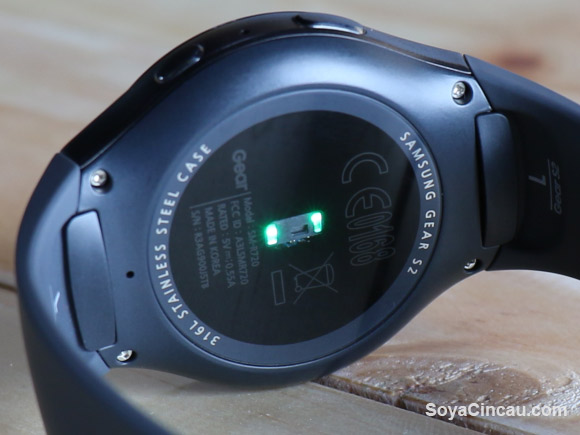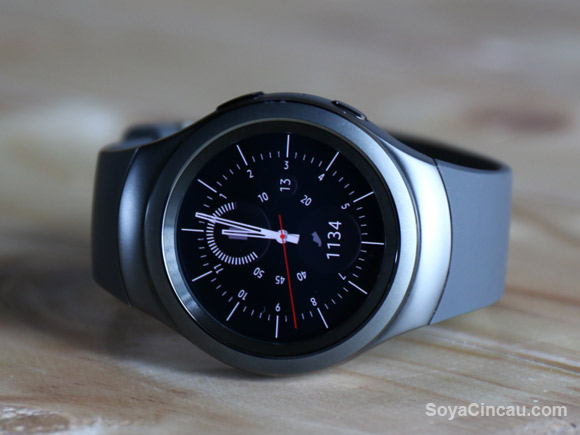Samsung has come a long way since its first smart watch, the Galaxy Gear. Dropping its tech gadget looks for a more stylish appearance, the Gear S2 is their first model that comes with a round face.
In the past, Gear smart watches seemed to be a technological showcase of what Samsung can do on a tiny form factor. They’ve experimented many things from cameras, infrared blaster, heart rate sensor and even the ability to make phone calls over 3G. More recently they had flaunted their flexible curved screen capabilities on the Gear Fit and Gear S.
Focusing on style, the Gear S2 and its Classic variant are designed to look like a normal wrist watch, while keeping its smart “internals” out of sight. Most people wouldn’t notice it is a smart watch until the screen lights up.
The key differences between the Gear S2 and the Gear S2 Classic is the appearance and the choice of straps. The Gear S2 has a simple and modern look while the Gear S2 Classic features a ridged bezel, mimicking the looks of an timeless watch piece. To personalise the look, the Gear S2 uses its own proprietary straps which is easily replaced without tools. However you’re limited to what Samsung has to offer in each respective market. Meanwhile, the Gear S2 Classic has the added advantage with a standard 20mm leather band that can be replaced with any similar-sized strap. The rest of its hardware and features are identical underneath.
[nextpage title=”Gear S2: Unboxing”]
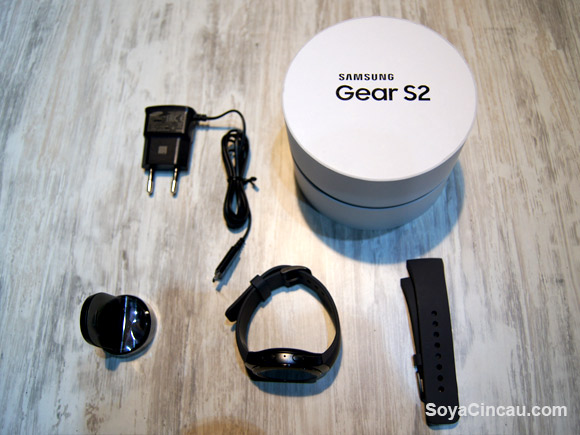
In terms of packaging, the Gear S2 is boxed up in a simple round box which reminds us of the Moto 360. Inside you’ll find the watch sitting on a plastic tray and the unit which we’ve got is the Dark Grey version. For the normal Gear S2, you can have it in dark grey (with dark grey body) or white, that comes with a contrasting silver colour body.
By default you get a large sized rubber strap attached to the Gear S2 but if that’s too big, Samsung has also included a smaller sized spare that comes in two pieces. Replacing the strap can be done easily with a simple press and pull trick on each side.
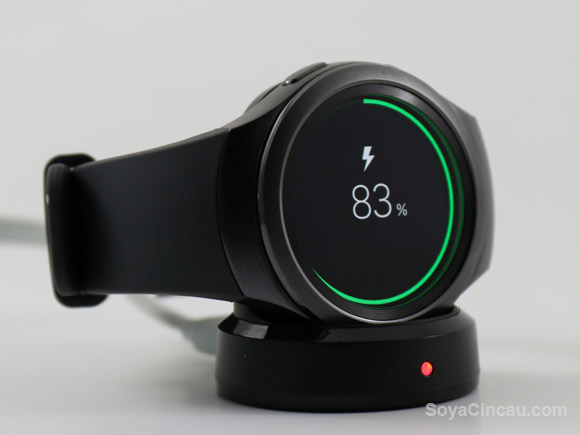
To charge the Gear S2, it uses a wireless dock that’s hooked up with a microUSB port. You can either use the provided 0.7Amp microUSB power adapter or any USB powered source including a power bank. With a 250mAh battery, it should last 2 to 3 days on a single charge, outdoing its rivals slightly.
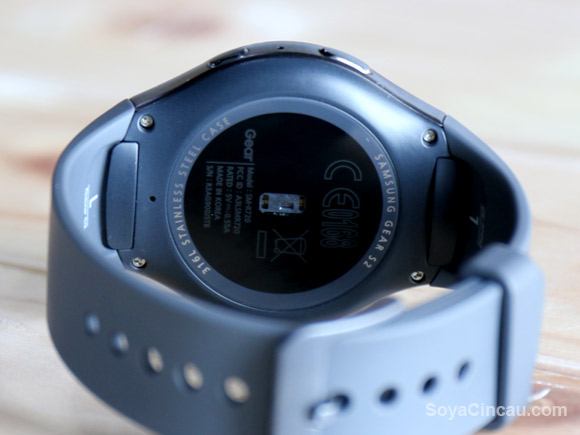
With this approach, you need not to worry about chunky adapters like the past Gear smart watches. This has allowed Samsung to make the back of the Gear S2 look more presentable with a heart rate sensor neatly positioned in the middle. In terms of connectivity, it pairs with your phone using Bluetooth and if you’re away from your device, it also connects with WiFi. There’s NFC support but that’s primarily used for Samsung Pay which isn’t available in Malaysia yet.
[nextpage title=”Gear S2: First Impressions”]
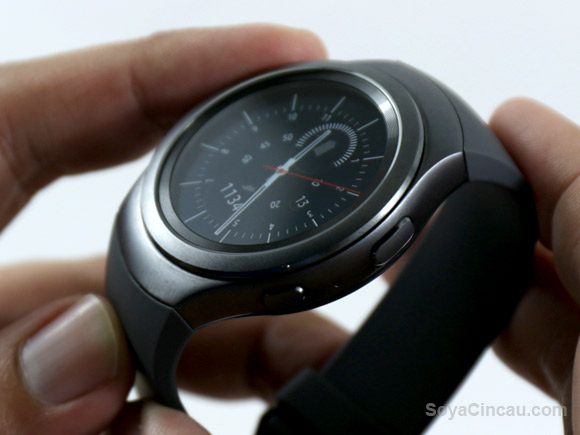
The Gear S2 is undoubtedly the best looking watch from Samsung and it could have easily passed off as a timepiece from Swatch. The 316L Stainless Steel case is solid and it doesn’t feel too thick on our wrists. The front display is a round 1.2″ AMOLED 360×360 screen that is large enough for most guys. The only complaint we had is it’s a fingerprint magnet. If you look carefully, you could spot smudge marks around the watch case in this dark grey version.
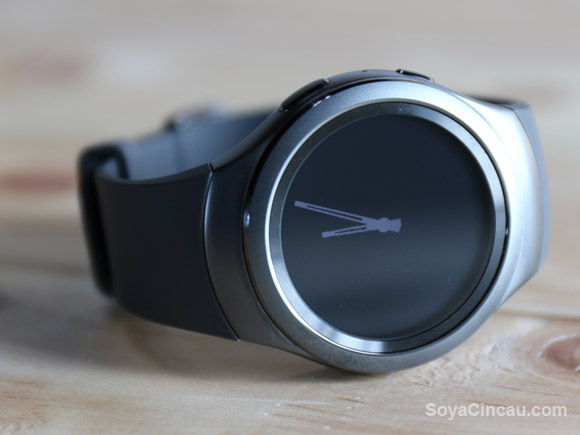
Upfront there are no buttons, simply just the display and a bezel ring that’s rotatable. The only buttons are found on the right side, which are used for home and going back. As you turn the bezel to navigate, you get a subtle ticking friction which is much better feeling than Apple’s digital crown.
By default, the screen wakes up as you bring your wrist towards you. Alternatively you can either spin the bezel or press any buttons to wake the display. If you prefer to have the time shown at all times, you can set the display to be always-on. This would show the outline of an analog clock or the time in digital text format. However be warned that by doing so, it would consume more power than usual. Whenever you receive a notification alert, the watch vibrates subtly which isn’t too rigorous but it isn’t as distinctive as Apple Watch’s taptic feedback. Bringing your wrist towards you upon vibration will display the content automatically hands-free.
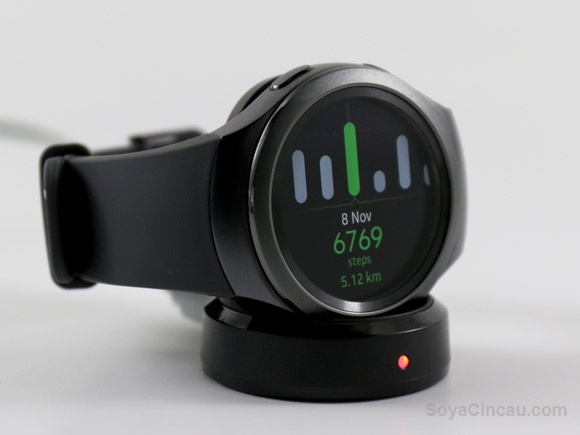
The Gear S2 is still based on Tizen OS with the UI being redesigned to utilise its circular display. Upon waking the screen, you’ll see the watch face that can be customised by type and you get additional tweaks like you do on the Apple Watch. Turning the bezel counter-clockwise brings up notifications, while turning clockwise displays your favourite widgets including weather, steps taken so far, music control and your current heart rate measurement. Pressing the home button on the home screen brings up the app listing which is displayed in a rotary fashion.
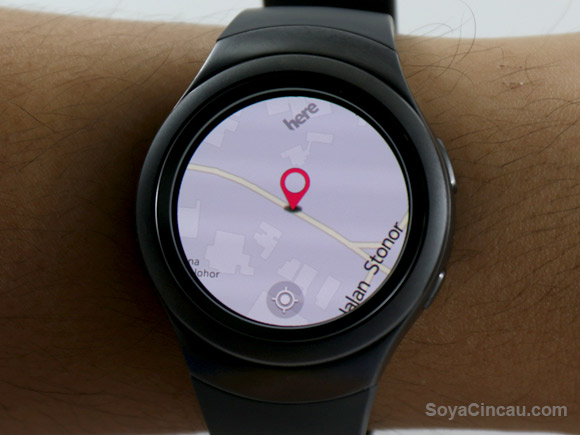
You can use your voice to reply messages or type using the on-screen T9 keyboard. From our experience the voice recognition isn’t that great while typing can be a challenge for people with fat fingers. In the past Gear 2 and Gear S, you could use your watch for voice calls but not with this one as it lacks a speakerphone. Tapping on a phone number will initiate a call but you’ll need to use your smart phone for your actual conversation. Voice calling from the watch is only possible with the Gear S2 3G version which isn’t available here just yet. The same goes for GPS as the standard Gear S2 relies on your smart phone for location services.
You tend to use the rotating bezel a lot with the Gear S2, with the exception for reading long text, where it is faster to scroll using your finger. Overall the user interface is much simplified and new users should easily get acquainted in a short span of time. App support for the Gear S2 is its Achilles heel as it is quite limited at the moment compared to the Apple Watch. You do get quite a decent number of essentials apps and a branded watch faces from ESPN, Bloomberg and LINE.
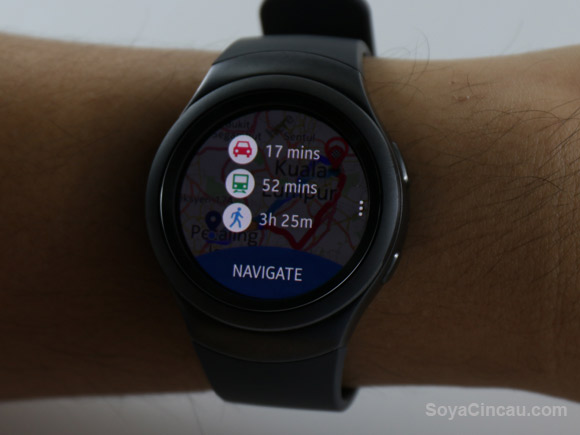
As far as looks and interaction go, Samsung has finally nailed it on the Gear S2 and it should appeal better to the masses. Feature wise, it lacks built-in GPS and a speakerphone, which may or may not be a deal breaker for you. If you’re the type that prefers running without carrying a phone, you won’t be able to map your run standalone but it is still able to track your distance, heart rate and current pace.
At RM1,399 for the standard Gear S2 and RM1,599 for the Classic version, it is more affordable than the Apple Watch especially when compared to its stainless steel version. The Gear S2 currently not only supports Samsung devices but most Android smart phones running 4.4 KitKat and above. Word has it that it could also gain iOS support very soon.
Gear S2 Photo Gallery
